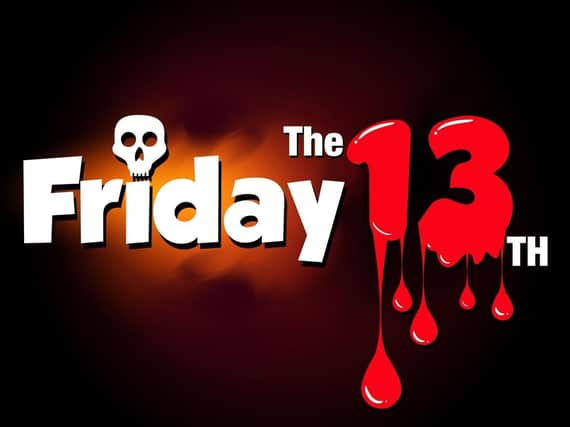Friday the 13th: What is its history and why is it considered unlucky?


The date and day itself occurs in any month of the year which starts on a Sunday. This happens at least once a year but can come about up to three times in the same year.
History
The superstition is thought to date back to biblical times when 13 guests, Jesus and his 12 apostles, attended the Last Supper on Maundy Thursday. The next day was Good Friday, the day of Jesus’ crucifixion.
Advertisement
Hide AdAdvertisement
Hide AdA long-term Christian superstition believed that having 13 guests at a table was bad luck and that it was enticing death.
The negative connotations of Friday the 13th is believed to have been rooted from biblical times of the Old and New Testaments. Just as Jesus was crucified on a Friday, that day was also thought to be the day Eve gave Adam the apple from the Tree of Knowledge, as well as the day Cain killed his brother, Abel.
Fear of the number 13
There are three scientific names for those who have a fear of the number 13: triskaidekaphobia, friggatriskaidekaphobia and paraskevidekatriaphobia.
Friggatriskaidekaphobia comes from Frigg, the Norse goddess of wisdom whom Friday is named after, and the Greek words triskaideka which means 13, and of course phobia meaning fear.
Experts have claimed that friggatriskaidekaphobia affects millions of people worldwide and that the fear of the number 13, triskaidekaphobia, is even more widespread.